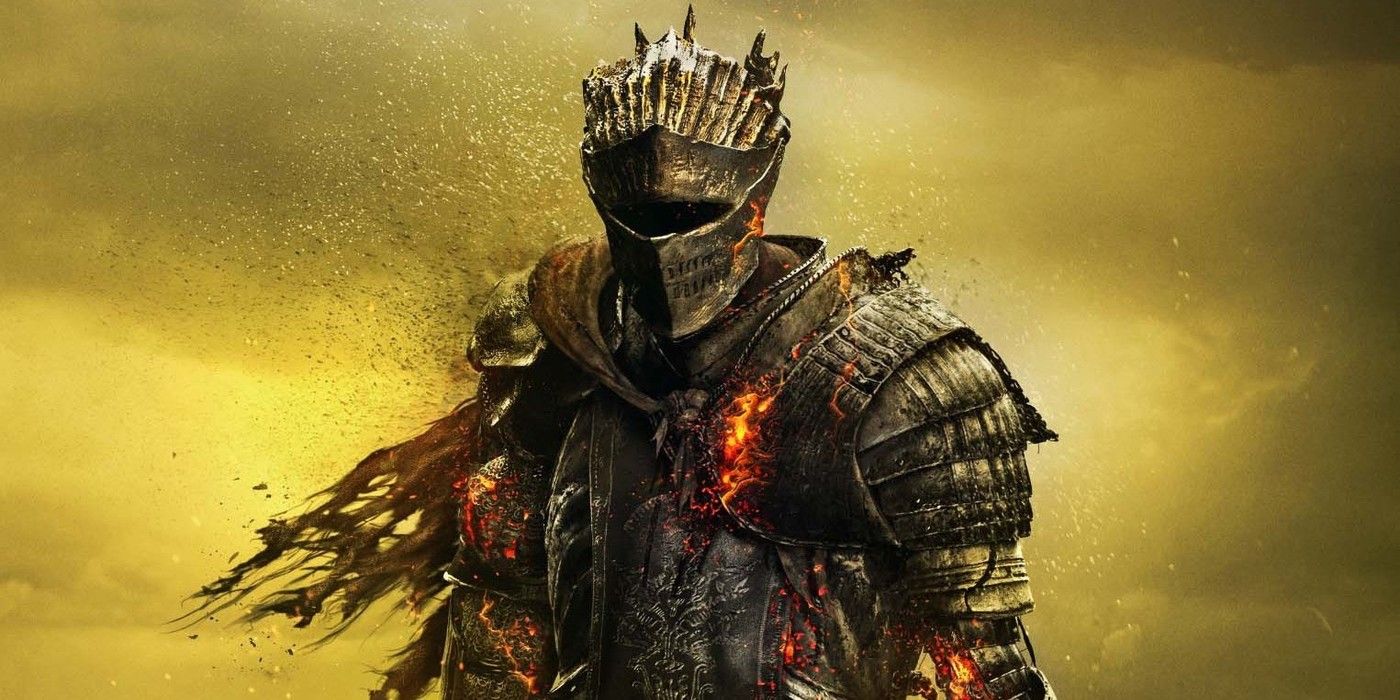
Ever since FromSoftware's Dark Souls franchise took off in popularity, a great debate has raged about the games' high level of difficulty. There are those who find the Dark Souls games, and Souls-like games in general, completely inaccessible. Others wouldn't have it any other way, as they prefer the steep challenge provided by the Souls-like genre, with many seeing it as a fresh of breath air in an industry dominated by easier, more casual gaming experiences.
There are those who enjoy mastering challenging games like the Dark Souls titles, and there are those who simply don't have the time necessary to invest in the games and "get good." These people may still want to take in the impressive sights and boss designs found in FromSoftware's game worlds, but are unable to do so because they find the difficulty too much to overcome.
RELATED: Elden Ring Has Multiple Endings, More 'Freedom' Than Dark Souls
And so the debate has been whether or not the Dark Souls games should add easier difficulty options for more casual players. Purists say no, that giving Dark Souls difficulty options would completely ruin the grim atmosphere that the games possess and rob them of what makes them special. Others argue that those looking for a challenge could still play Dark Souls as intended, but that difficulty options would make the game more accessible to a wider audience.
FromSoftware so far has seemed uninterested in adding difficulty options to Dark Souls or any of its other games for that matter, but if it ever does decide to do so, there is one indie game that it may want to take inspiration from. CrossCode by Radical Fish Games is a great example of difficulty options done right, and it's easy to see how the way it handles difficulty could be translated to the Dark Souls series.

For those unfamiliar with the game, CrossCode is an action-RPG with 16-bit style graphics that's known for its pretty steep challenge. CrossCode is full of mind-bending puzzles that require players not only to think, but to have perfect timing as they often involve shooting balls of energy at just the right angle and at just the right time. It also has seriously difficult boss fights; some of the battles in CrossCode could give Dark Souls bosses a run for their money, for sure.
Like the Dark Souls games, CrossCode is completely doable if players invest the time into learning how to pull off all of their special attacks, leveling up their character, and memorizing boss patterns. The game is extremely tough, but also fair. However, the game's boss fights are difficult enough that some may reach a point where they are unable to progress further, which could be disappointing for anyone that wants to know what happens in CrossCode's story. The bosses can serve as a roadblock, potentially leading to frustration and players quitting the game entirely.
CrossCode's ultra-tough difficulty is its default setting, but players are free to adjust things as needed. CrossCode lets players adjust sliders so they can lower the damage they take from enemies as well as the frequency of enemy attacks. They can't move the dials all the way down to zero, but they can still pull them back rather significantly. Those having trouble with CrossCode's puzzles can tweak those as well, slowing things down to make them more doable.
Not only does this make it possible for some players to make more progress in CrossCode when they may have quit otherwise, but it allows them to perfectly tailor it to the kind of experience they're wanting. Maybe someone enjoys figuring out CrossCode's tougher puzzles, but they have no interest in overcoming its boss battles. Alternatively, someone could have fun beating CrossCode's bosses into submission, but may find the puzzles annoying. The CrossCode Assist sliders ensure that fans can focus on whatever aspect of the game they enjoy most, minimizing frustration in the process.
Of course, CrossCode players using the Assist sliders don't have to take things to the extremes either. They could dial back the damage taken from enemies to halfway if they want, while keeping the enemy attack frequency high. It really boils down to player choice and that's something that the Dark Souls franchise, and similar games, could learn a lot from.

If Dark Souls were to take the CrossCode approach to difficulty, it could have its usual high difficulty setting as the default so anyone playing would know that was the way the developers intended the game to be played. However, it could have Assist sliders to allow players to adjust things like the damage they take from enemies, which would in turn open the door for a lot more people to enjoy the franchise and FromSoftware's other titles.
One reason why this might not work is Dark Souls' online multiplayer functionality. Introducing a system like this would potentially make Dark Souls PvP unfair, as some players could more easily acquire desirable weapons and armor that they could then use to invade other players' games, including those that are playing normally without any assists. A solution to this would be to simply make it impossible for those using the Assist sliders to access the online multiplayer features; someone who would want to use them likely doesn't want to have to deal with the threat of players invading their game anyway.
Whether or not a Dark Souls easy mode or something equivalent to CrossCode's Assist sliders ever materializes remains to be seen. The debate will continue for now.
MORE: Why FromSoftware is Unlikely to Ever Make Sekiro or Bloodborne Sequels

